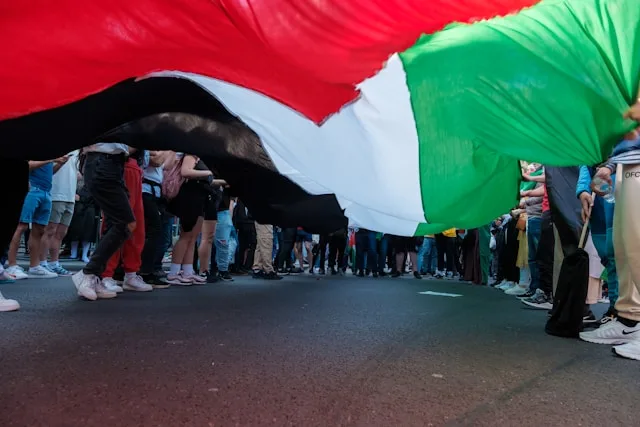Two septuagenarians and a woman now face terrorism charges after a July display supporting the banned Palestine Action
In a striking turn of events, two women, aged 71 and a 53-year-old woman, have become the first to face terror-related charges for publicly supporting Palestine Action—an organisation proscribed under the UK’s Terrorism Act—during a Westminster protest on 5 July 2025.
The Crown Prosecution Service has confirmed that Jeremy Shippam, Judit Murray, and Fiona Maclean stand accused under Section 13 of the Terrorism Act 2000. The allegations centre on “displaying an article in a public place, arousing reasonable suspicion they are supporters of a proscribed organisation.” All three are slated to appear before Westminster Magistrates’ Court on 16 September.
Police and prosecutors are closely watching upcoming plans for another major protest in Parliament Square this Saturday. Organised by Defend Our Juries, the rally is expected to draw upwards of 500 demonstrators.
Commander Dominic Murphy, heading the Met’s Counter Terrorism Command, issued a blunt warning that public displays of support for Palestine Action are criminal offences. He stressed the seriousness of the law, noting that the recent charges highlight how closely authorities are watching public behaviour—and said further case files for 26 others arrested the same day are expected to go to the CPS.
Embed from Getty ImagesSince Palestine Action was designated a terrorist organisation on 5 July, UK police have arrested a staggering 221 individuals nationwide under various terrorism law offences. Among these, 10 people—including Shippam, Murray, and Maclean—have now been formally charged.
Civil liberties groups are alarmed by the widening net cast by the legislation. Amnesty International has publicly called on the Met to show restraint, especially regarding attendees carrying placards that read “I oppose genocide, I support Palestine Action.” The organisation warned that arresting peaceful protesters for such displays could violate rights to free expression and assembly under international law.
Meanwhile, prison authorities across England are girding for potential strain on the system. As protests loom, the prison service has reactivated its “capacity gold command” to manage limited cell space. The system is nearing full capacity at 97.5%, prompting plans to deploy open prisons and home detention curfews if necessary.
This development marks a watershed moment for how protest is policed in modern Britain. It signals that even non-violent displays perceived as supportive of Palestine Action may now come with severe legal consequences. Yet the government emphasises that the ban targets the group’s actions—not individuals advocating broadly for Palestinian rights.
For now, all eyes are on Westminster Magistrates’ Court in mid‑September, where the accused will stand trial, and on whether this weekend’s protest triggers any further enforcement actions.
